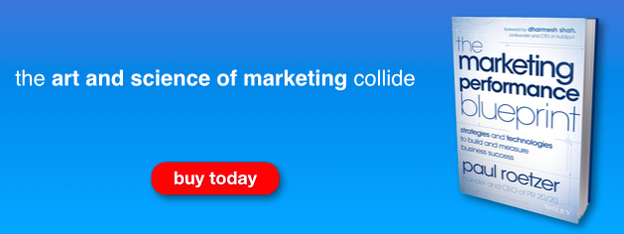There is one tactic that top-of-their-game professionals use to create wealth, seize opportunities and drive success: cross-disciplinary thinking. They expose themselves to ideas outside their field and, as a result, make connections others don’t.
 These connections create new business opportunities, creative (or even world-changing) ideas, and massive personal and professional growth.
These connections create new business opportunities, creative (or even world-changing) ideas, and massive personal and professional growth.
Steve Jobs was a fan of this strategy. And plenty of top minds in every professional field use it daily to deliver results and lead better.
Marketers can receive the exact same benefits. By exposing themselves to ideas outside of marketing, they can, in turn, achieve better results in their campaigns and careers. This post is designed to start you down the cross-disciplinary path, if you’d like to reap the rewards it offers.
I’ve collected what I believe to be some of the best non-marketing resources to learn something new. I’d love if you offered your own suggestions in this post’s comments.
20+ Non-Marketing Resources for Marketers
Brain Pickings
Maria Popova (@brainpicker) hand-curates and connects the most interesting books, art and information into an incredible buffet of cross-disciplinary knowledge that you won’t find anywhere else online.
The Economist
News gets a bad rap these days, with hysterical headlines, shoddy reporting and skin-deep analysis. The Economist is an outlier in a world of bite-sized stories designed to be mental snacks, not sustenance. Its deep analysis of current affairs and economics is second to none. (Though the sheer density of the magazine each week has been rightly lampooned by The Onion.) Here’s the subscription link. If you read one new information source, make it this one.
Fast Company
Readers of Fast Company get a visually stunning, information-packed site that focuses on the intersection of business, design and technology.
Farnam Street
One of the most thought-provoking sites on the internet, Farnam Street is where Shane Parrish (@farnamstreet) draws unparalleled insights on how to think from some of the planet’s greatest minds.
Mental Floss
Mental Floss subscribers know something the rest of us don’t: That this site is the premier destination for trivia that actually matters. Purveyors of the quirky, fascinating and downright weird, Mental Floss is your destination for what you didn’t know you needed to know.
Next Draft
Next Draft promises “the day’s most fascinating news,” and it delivers in spades. One of the rare daily newsletters actually worth signing up for.
WTF with Marc Maron
Comedian Marc Maron (@marcmaron) is known on this podcast for his quirky and deeply human interview style. His guests have ranged from NPR’s Terry Gross to Talking Heads frontman David Byrne to the President of the United States. Simply put: Maron’s podcast is the best way to virtually meet a weird and wonderful range of people who will expose you to tons of new views.
Study Hacks
Don’t let the name fool you. Study Hacks is a blog obsessed with how the best-of-the-best perform better and produce more in less time. You won’t just learn something new; you’ll learn how to strategically improve yourself in life and business.
The Tim Ferriss Show
Tim Ferriss (@tferriss)—of The 4-Hour Workweek fame—spends each episode of this podcast decoding how excellent people became, well, excellent. The diversity of guests and depth of the questions makes this required listening for anyone who wants to come away smarter.
Longform and Longreads
Two sites that collect daily the best longform journalism on the internet across every topic you can think of.
StumbleUpon
If the internet had a roulette wheel, it would be called StumbleUpon. Select categories you’re interested in and start clicking the Stumble button to find new and engaging content. Discovery engines like StumbleUpon are extremely useful: They expose you to different ideas and perspectives you never would have otherwise found on your own.
Ryan Holiday’s Reading Recommendation Email
Marketer Ryan Holiday (@RyanHoliday) is also a ravenous reader who finishes more books in a month than most people do in a lifetime. He shares his favorites in a monthly free newsletter that might be the best source of reading recommendations online today. (And they’re almost never about marketing.)
Digg
Content discovery engine Digg is one of the fastest ways to queue up new content in both text and video formats.
TED Talks
Who doesn’t love a good TED talk? If you haven’t checked them out in awhile, do so: there’s more than 2,000 talks from the world’s smartest people on every topic you can think of—and some you might not.
Goodreads
Find out what other people online are reading, what they thought of it and other reads like it. Goodreads is, simply put, one of the best way to find new books that will expand your mind.
Arts & Letters Daily
Arts & Letters Daily skews towards the academic, but it’s a treasure trove of viewpoints, articles and studies running the length and breadth of art, literature, media and politics.
Medium
The latest venture from Twitter co-founders Evan Williams and Biz Stone, Medium is a blogging platform that is putting out some truly amazing content you should sample.
Quora
Quora is a question and answer website (with a lot of engagement around startup business topics) that is one of the best places to go if you’re looking to learn a topic outside your comfort zone.
Bonus: Some Book Recommendations
Don’t limit your cross-disciplinary education to blog posts and website articles. Full-length books are one of the best ways to build a knowledge base that transcends marketing topics. Here are some I recommend:
The Essays of Warren Buffett
Warren Buffett breaks down everything he knows about business and investing in these lucidly written essays. You’d be hard-pressed to find writing with more wisdom per sentence than Buffett’s.
Foundation
This science fiction classic is a favorite of Elon Musk, both for its engaging story and the power of its ideas. You won’t look at the world the same way again after reading Foundation.
Essentialism: The Disciplined Pursuit of Less
A must-read—especially for overworked marketers—that turns conventional wisdom about work and focus on its head.
Thomas Jefferson: The Art of Power
This book won the Pulitzer Prize, and for good reason: On the surface, it’s a biography of Thomas Jefferson, which is a rich enough subject. But it’s really a case study in Jefferson’s skilled use of power to achieve his goals. That makes it a valuable resource for anyone who is part of an organization.
What resources would you recommend? Let us know in the comments.
Image source: CollegeDegress360 via Flickr

%20Logo_BlueOrange_Trademark.png?width=800&height=269&name=Ready%20North%20(RN)%20Logo_BlueOrange_Trademark.png)




.jpg?width=300&name=Services%20Hub%203%20(3).jpg)



COMMENTS